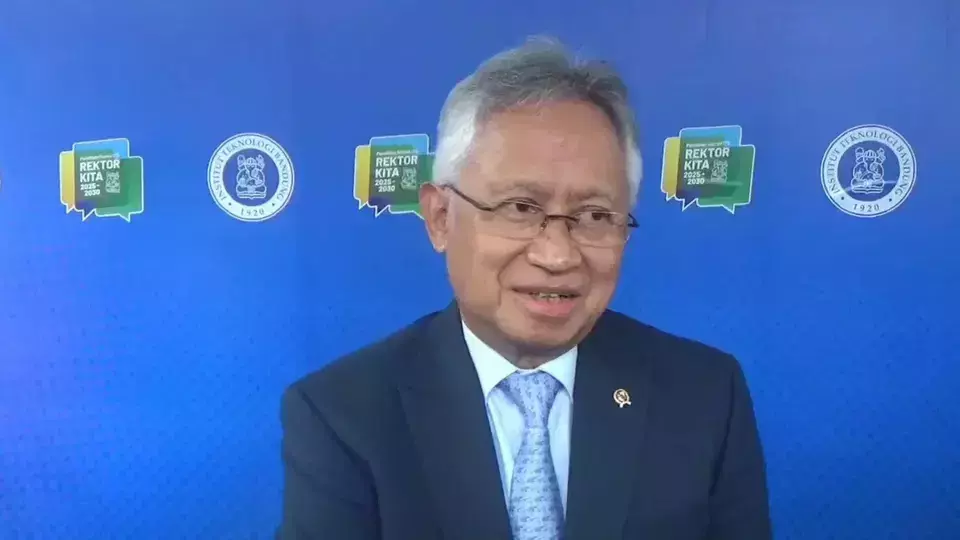INDONESIAUPDATES.COM, News En – Higher Education, Science, and Technology Minister Satryo Soemantri Brodjonegoro addressed ongoing protests from ministry employees following a significant reshuffling of staff.
The protests, staged at the ministry’s Central Jakarta office, were triggered by dissatisfaction over abrupt personnel rotations and allegations of authoritarian practices, including verbal abuse and dismissals without due process. Employees carried banners with slogans like “We are state employees, not family servants.”
Minister Defends Restructuring
Speaking at an event at his alma mater, the Bandung Institute of Technology (ITB), Satryo described the restructuring as essential for improving operational efficiency and cutting administrative costs.
“This restructuring aligns with the president’s directive to streamline operations and reduce wasteful spending,” he said. “Our ministry is now divided into three parts, which necessitates significant changes.”
The restructuring follows President Prabowo Subianto’s decision to split the former Ministry of Education and Cultural Affairs into three entities:
- Primary and Secondary Education Ministry
- Higher Education, Science, and Technology Ministry
- Cultural Affairs Ministry
Allegations of Mistreatment
The protestors, however, criticized the minister’s leadership style and handling of personnel changes. Concerns escalated following the dismissal of Neni Herlina, a long-serving staff member, over a minor incident involving office furniture.
Neni claimed she was publicly humiliated when the minister dismissed her on Jan. 17, allegedly blaming her for issues related to a desk arrangement. Protestors also pointed to an online voice recording in which Minister Satryo was heard reprimanding another staff member harshly for failing to provide water at his residence.
The staff member, who had been attending to a sick family member at the time, later admitted his oversight but described the minister’s reaction as unnecessarily severe.
Minister’s Response
Minister Satryo dismissed the allegations, denying claims of verbal or physical abuse. “There was no violence or slap involved,” he said. “These accusations are entirely false. What we are doing is cleaning up inefficiencies and ensuring the ministry operates more effectively.”
He acknowledged the discomfort caused by the changes but emphasized their necessity. “Some individuals may find these changes unsettling, but they are crucial for the country’s progress,” he stated.
Calls for Transparency
Protestors are demanding greater transparency in staffing decisions and a commitment to a more respectful and inclusive leadership approach. They argue that the abrupt changes and dismissals undermine morale and trust within the ministry.
As the protests continue, public scrutiny remains focused on Minister Satryo’s leadership, particularly as his ministry navigates the complexities of restructuring in line with national education and technological goals.
FAQ – Restructuring and Employee Protests at the Ministry of Higher Education, Science, and Technology
1. What triggered the employee protests at the ministry?
The protests were sparked by dissatisfaction over widespread staff reshuffling, allegations of authoritarian leadership practices, and the abrupt dismissal of employees without proper procedures.
2. Who is leading the ministry during this restructuring?
The Ministry of Higher Education, Science, and Technology is led by Minister Satryo Soemantri Brodjonegoro, who has implemented these changes to improve efficiency and reduce administrative costs.
3. Why is the restructuring being carried out?
The restructuring aligns with President Prabowo Subianto’s directive to streamline government ministries, specifically dividing the Education and Cultural Affairs Ministry into three distinct entities to improve focus and operational efficiency.
4. What are the main allegations against Minister Satryo?
Protestors accuse Minister Satryo of authoritarian practices, verbal abuse, and harsh reprimands toward staff, as well as arbitrary dismissals without due process, such as the case of long-serving staff member Neni Herlina.
5. How has the minister responded to these allegations?
Minister Satryo has denied all allegations of verbal and physical abuse, describing the claims as “entirely false.” He emphasized that the changes are necessary for improving ministry efficiency and aligning with national goals.
6. What specific incidents fueled the protests?
Two notable incidents include the dismissal of Neni Herlina after a minor issue involving office furniture, and a leaked voice recording where Minister Satryo harshly reprimanded a staff member over an oversight regarding water service at his residence.
7. How are employees reacting to the restructuring?
Employees have expressed dissatisfaction with the abrupt changes and lack of transparency. Protestors carried banners reading, “We are state employees, not family servants,” reflecting their concerns about respect and dignity in the workplace.
8. What is the government’s stance on these changes?
The government supports the restructuring as part of broader efforts to streamline ministries and reduce costs. However, concerns over leadership practices and transparency are expected to be addressed as protests continue.
9. What are the protestors demanding?
Protestors are calling for greater transparency in staffing decisions, a more respectful and inclusive leadership approach, and an end to authoritarian practices and arbitrary dismissals.
10. What’s next for the ministry?
The ministry will likely continue its restructuring efforts while addressing employee concerns to restore trust and morale. Public scrutiny will remain focused on how Minister Satryo manages these challenges.
IKUTI INDONESIAUPDATES.COM DI GOOGLE NEWS







